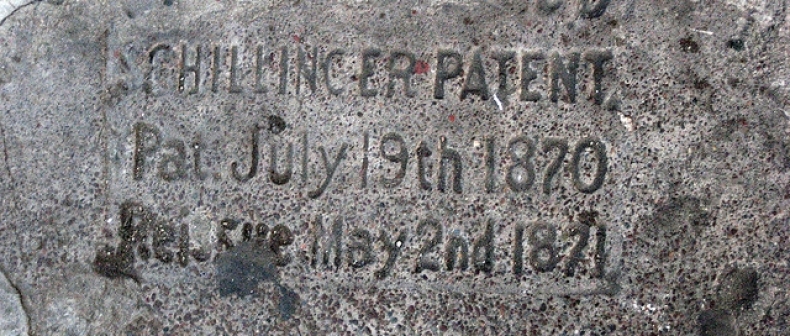
Even sidewalks can be patented…or rather, the concrete that makes them is. Image via Flickr.
At the end of August, New Zealand caused a bit of a stir when they passed a law that bans patents for all basic software in that country. The law was part of an update of an outdated 60-year-old patent bill, and it applies to both local and international companies who want software patents in New Zealand. Software patents are no longer allowed there, although significant innovations and programs are still protected under copyright law.
“By clarifying the definition of what can be patented, we are giving New Zealand businesses more flexibility to adapt and improve existing inventions, while continuing to protect genuine innovations,” said Craig Foss, the National party member of Parliament who was responsible for the bill. This news brings up a lot of issues regarding software, patents, patent trolls, innovation, and whether or not software should even be considered a patentable invention in the first place. But let’s start from the beginning. What is a patent, and what does it protect?
Patents give inventors the exclusive rights to earn royalties from the manufacture, use, or sale of their inventions. They protect an invention for up to 20 years. It also protects an invention from being reverse engineered, or having someone make something that performs the same function but using a different method. Patents must be applied for in every country an inventor wants to have their work protected, and the length and terms vary everywhere. Contrast this with copyright, which is for creative forms of intellectual property, is applied automatically, and only protects the expression of ideas, not the idea itself. Software patents have long been controversial, and in fact software was not even patentable in the United States until 1990. The main issue with software patents is that software is more like a document than a device. Software is simply made up of algorithms, of math, and since math can’t be patented, software shouldn’t be either. Software is also very rarely truly unique, and is made up of new expressions of the same algorithms, and so patenting software can actually hinder innovation by not allowing everyone access to them.
Then there is the issue of patent trolls. Patent trolls are individuals or companies whose entire job is to enforce patent rights. (For a more detailed look at how patent trolls operate, American academics Tom Ewing and Robin Feldman have made a pretty great infographic). They are a huge problem in the U.S., where they tie up the court system and often force companies to settle instead of paying exorbitant court fees. Patent trolls again hinder innovation because smaller startups have to be very careful when creating software so they aren’t caught in a legal battle they can’t afford. The U.S. also has the additional fun of having so many new patents filed there that they get approved without much oversight, which confuses the system even further.
In Canada the issue isn’t quite as widespread, though software is patentable here. Instead what we have here is more issues of large American companies buying up Canadian ones strictly for their patents — for example, when Google purchased Motorola in 2011, and also when a consortium made up of Microsoft, Apple, RIM (Research in Motion), Sony, Ericsson and EMC purchased the remains of Nortel that same year. They then used these patents to halt potential competition by threatening to sue them with the patents they now owned. All of this combines to create a system that’s bad for start-ups, bad for innovation, and ultimately, bad for the consumer. The next great world changing innovation may never happen because Google owns the patent to something totally mundane, like, I don’t know, a new OS.
The thing is, New Zealand isn’t even unique in its banning of software patents. This has been the case in the E.U. for a long time. And while the E.U.’s system isn’t exactly perfect (several workarounds have been found by the truly dedicated and devious), it hasn’t stopped companies from creating new software, and it hasn’t had tech companies fleeing these countries in droves either. (If someone tells you they don’t believe in banning software patents in Canada because it will make tech companies not want to set up shop here, well, they have literally no idea how patents work. Or how software is created, for that matter.). Most Canadian startups avoid the problem entirely by not filing for patents in the first place (most can’t afford them), so why have them? Patents pretty much only protect those with the power and money to buy them and enforce them, and as tech grows in Canada, it makes more and more sense for us to ban them here in order to encourage growth and innovation. (Whether or not the corporation-friendly Harper government will ever do so is a different matter entirely).
If you’re interested in supporting the no software patent movement, consider checking out organizations like the Free Software Foundation, End Software Patents, and the Electronic Frontier Foundation.
____
Megan Patterson is a freelance writer and the Science and Technology Editor at feminist geekery site Paper Droids. She also tweets more than is healthy or wise.
For more, follow us on Twitter at @torontostandard and subscribe to our Newsletter.














